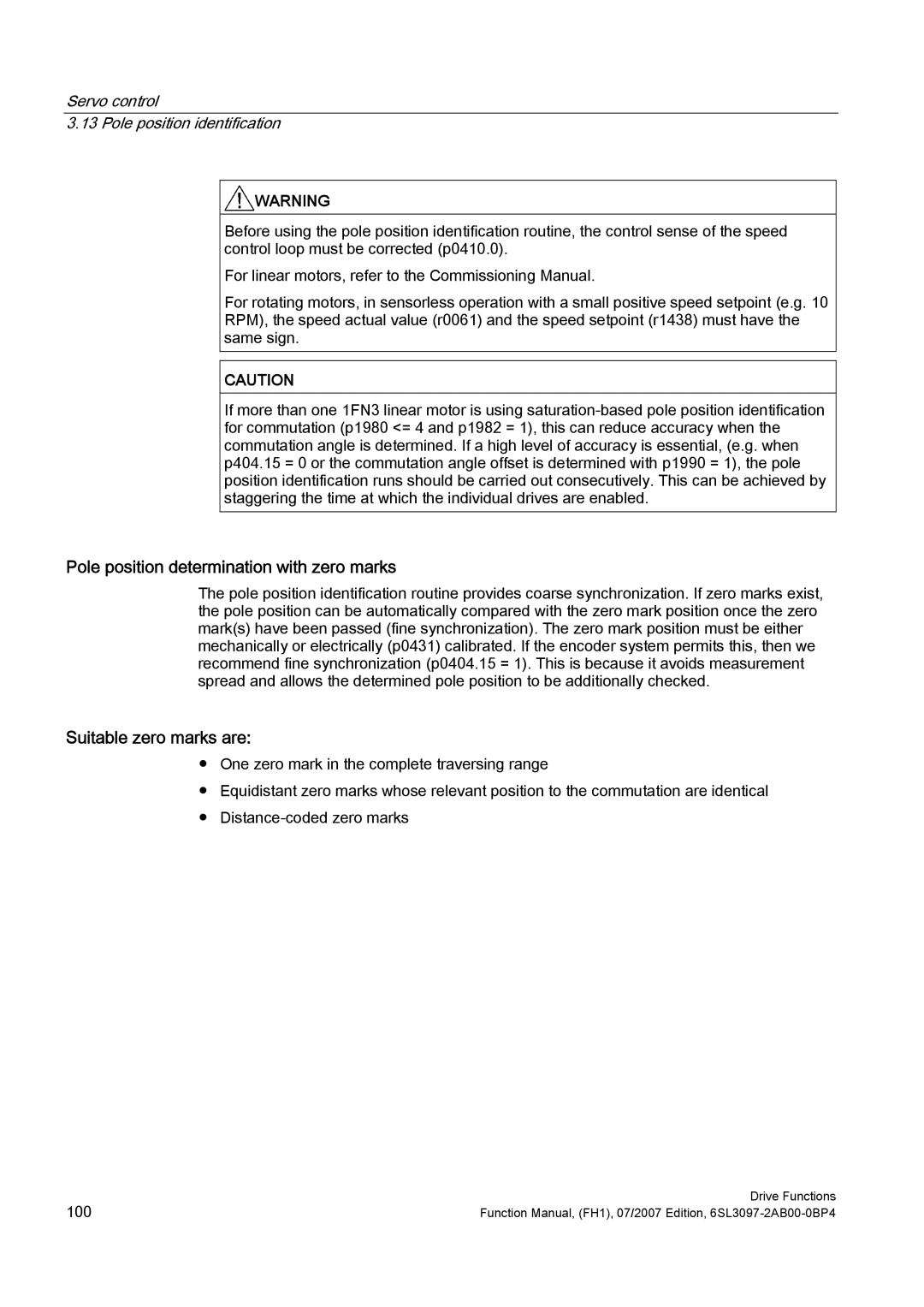
Servo control
3.13 Pole position identification
![]() WARNING
WARNING
Before using the pole position identification routine, the control sense of the speed control loop must be corrected (p0410.0).
For linear motors, refer to the Commissioning Manual.
For rotating motors, in sensorless operation with a small positive speed setpoint (e.g. 10 RPM), the speed actual value (r0061) and the speed setpoint (r1438) must have the same sign.
CAUTION
If more than one 1FN3 linear motor is using
Pole position determination with zero marks
The pole position identification routine provides coarse synchronization. If zero marks exist, the pole position can be automatically compared with the zero mark position once the zero mark(s) have been passed (fine synchronization). The zero mark position must be either mechanically or electrically (p0431) calibrated. If the encoder system permits this, then we recommend fine synchronization (p0404.15 = 1). This is because it avoids measurement spread and allows the determined pole position to be additionally checked.
Suitable zero marks are:
●One zero mark in the complete traversing range
●Equidistant zero marks whose relevant position to the commutation are identical
●
100 | Drive Functions |
Function Manual, (FH1), 07/2007 Edition, |
